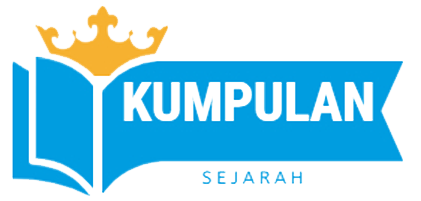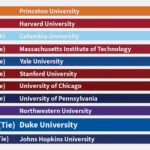Cornell University US News: Ranking, Reputation, and More delves into the world-renowned institution’s standing in the latest US News & World Report rankings. From its overall national ranking to its prowess in specific subject areas, we explore what makes Cornell a top choice for students and scholars alike.
Cornell consistently ranks among the top universities in the nation, garnering recognition for its academic excellence, research prowess, and vibrant campus culture. This article provides a comprehensive overview of Cornell’s strengths, including its esteemed faculty, cutting-edge research, and diverse student body. We also delve into the admissions process, financial aid options, and career services available to students.
Cornell University Rankings in US News & World Report: Cornell University Us News
Cornell University consistently ranks among the top universities in the United States, earning a prestigious spot in the US News & World Report’s Best National Universities list. The university’s strong academic reputation, diverse research opportunities, and commitment to excellence across various disciplines contribute to its high standing.
Overall Ranking
Cornell University holds a strong position in the US News & World Report’s Best National Universities rankings. In the 2023 edition, Cornell ranked 17th overall, solidifying its place among the nation’s top institutions. This ranking reflects the university’s exceptional academic quality, research prowess, and commitment to providing a comprehensive and enriching educational experience for its students.
Subject Area Rankings
Cornell University excels in various academic disciplines, earning top rankings in several subject areas.
Engineering
Cornell’s College of Engineering consistently ranks among the best in the nation. In the 2023 US News & World Report rankings, Cornell’s engineering program ranked 11th overall. The college boasts a renowned faculty, cutting-edge research facilities, and a strong emphasis on innovation and practical application.
Business
Cornell’s Samuel Curtis Johnson Graduate School of Management is recognized as a leading business school. In the 2023 US News & World Report rankings, the Johnson School ranked 14th overall among graduate business schools. The school is known for its rigorous curriculum, strong alumni network, and commitment to developing ethical and innovative business leaders.
Law
Cornell Law School, consistently ranked among the top law schools in the country, is known for its distinguished faculty, rigorous curriculum, and strong alumni network. In the 2023 US News & World Report rankings, Cornell Law School ranked 10th overall. The school offers a comprehensive legal education that prepares graduates for successful careers in various legal fields.
Arts and Sciences
Cornell’s College of Arts and Sciences is a powerhouse of academic excellence, encompassing a wide range of disciplines, from the humanities and social sciences to the natural sciences. In the 2023 US News & World Report rankings, Cornell’s Arts and Sciences programs ranked highly in several subject areas, including biology, chemistry, physics, and psychology.
Comparison with Other Institutions
Cornell University’s ranking is consistently high compared to other Ivy League institutions and top-tier universities.
Ivy League
In the 2023 US News & World Report rankings, Cornell University ranked among the top half of the Ivy League institutions.
- Princeton University: 1st
- Columbia University: 2nd
- Harvard University: 3rd
- Yale University: 4th
- University of Pennsylvania: 7th
- Stanford University: 5th
- Massachusetts Institute of Technology (MIT): 6th
- Dartmouth College: 12th
- Brown University: 14th
- Cornell University: 17th
- University of Chicago: 8th
Top-Tier Universities
Cornell University consistently ranks among the top universities nationwide, competing with other prestigious institutions.
- California Institute of Technology (Caltech): 9th
- Duke University: 10th
- University of Michigan-Ann Arbor: 23rd
- University of California-Los Angeles (UCLA): 20th
- University of California-Berkeley: 19th
- University of Washington: 52nd
- New York University (NYU): 28th
- Northwestern University: 12th
- University of Notre Dame: 15th
- University of Southern California (USC): 22nd
Academic Reputation and Strengths
Cornell University has a longstanding reputation for academic excellence and is consistently ranked among the top universities in the United States. Its strength lies in its diverse range of academic programs, world-renowned faculty, and commitment to research and innovation.
Faculty and Research
Cornell’s faculty is comprised of leading scholars and researchers who are dedicated to pushing the boundaries of knowledge. The university boasts a faculty-to-student ratio of 1:7, which allows for personalized attention and close mentorship. Cornell’s commitment to research is evident in its extensive research facilities, including the Cornell High Energy Synchrotron Source (CHESS), the Cornell NanoScale Science and Technology Facility (CNF), and the Cornell Laboratory for Ornithology. These facilities provide state-of-the-art equipment and resources for faculty and students to conduct cutting-edge research.
Notable Alumni
Cornell University has produced a remarkable number of successful alumni who have made significant contributions to their respective fields.
- Robert F. Kennedy Jr., environmental activist and author, is a graduate of Cornell Law School.
- Robert Langer, chemical engineer and entrepreneur, is a graduate of Cornell University and is known for his groundbreaking work in drug delivery systems.
- Katie Couric, journalist and television personality, is a graduate of Cornell University and has received numerous awards for her work in broadcasting.
Student Life and Campus Culture
Cornell University boasts a vibrant and diverse student body, fostering a dynamic campus culture that is both academically rigorous and socially enriching. With a wide range of cultural and social organizations, traditions, events, and extracurricular activities, Cornell offers an unparalleled student experience.
Diversity and Inclusion
Cornell’s student body is renowned for its diversity, reflecting a global perspective and fostering an inclusive environment. The university embraces students from all backgrounds, ethnicities, and socioeconomic statuses. With over 20,000 undergraduate students and 7,000 graduate students, Cornell’s campus is a microcosm of the world, offering a rich tapestry of perspectives and experiences.
- The university actively promotes diversity and inclusion through various initiatives, including dedicated offices and programs.
- Cornell has a strong commitment to supporting underrepresented minorities, fostering a sense of belonging and providing resources for their academic and personal growth.
- The diverse student body enriches the learning experience, exposing students to different viewpoints and perspectives.
Campus Culture and Traditions
Cornell’s campus culture is a unique blend of academic excellence, social engagement, and spirited traditions. The university’s rich history and strong sense of community create a vibrant and welcoming atmosphere. Cornell’s traditions, events, and extracurricular activities provide students with opportunities to connect with their peers, explore their interests, and create lasting memories.
- The annual “Big Red” football games are a major highlight of the campus calendar, bringing the entire community together to cheer for the team.
- Cornell’s a cappella groups are renowned for their talent and popularity, performing regularly throughout the year and competing in national competitions.
- The university’s numerous student organizations cater to a wide range of interests, from academic clubs to sports teams to social justice groups.
Campus Environment and Resources
Cornell University is committed to providing a safe, supportive, and inclusive campus environment for all students. The university offers a wide range of resources to promote student well-being, including counseling services, health centers, and academic support programs.
- The Cornell Health Center provides comprehensive medical care, including mental health services, to students.
- The university’s counseling and psychological services offer confidential support and guidance to students facing personal or academic challenges.
- Cornell’s academic support programs provide tutoring, workshops, and other resources to help students succeed in their studies.
Admissions and Financial Aid
Cornell University is a highly selective institution, known for its rigorous academic standards and demanding admissions process. Prospective students should carefully consider their academic achievements and extracurricular involvement before applying.
Admissions Process
Cornell University’s admissions process is holistic, taking into account various factors beyond academic performance. The university seeks students who are intellectually curious, engaged in their communities, and possess a strong work ethic.
- Application Requirements: Applicants must submit a completed Common Application or Coalition Application, along with official high school transcripts, standardized test scores (SAT or ACT), letters of recommendation, and a personal essay. The university also encourages applicants to submit supplemental materials, such as portfolios or resumes, to showcase their talents and interests.
- Deadlines: Cornell University has different application deadlines depending on the program and admission plan. Early Decision applicants are required to submit their applications by November 1st, while Regular Decision applicants have until January 1st.
Selectivity and Admissions Statistics
Cornell University is one of the most selective universities in the United States, with an acceptance rate of around 10%. This means that for every 10 applicants, only one is admitted.
- Average SAT/ACT Scores: The average SAT score for admitted students is typically between 1450 and 1570, while the average ACT score falls between 32 and 35. These scores represent the performance of students who were successful in gaining admission to Cornell.
- Average GPA: The average GPA for admitted students is typically in the 4.0 to 4.3 range, indicating strong academic performance throughout high school. It is important to note that these statistics are just averages and do not guarantee admission. Cornell University evaluates each applicant holistically, taking into account a variety of factors beyond academic performance.
Financial Aid
Cornell University is committed to making a world-class education accessible to students from all socioeconomic backgrounds. The university offers a comprehensive financial aid program that includes scholarships, grants, and loans.
- Need-Based Financial Aid: Cornell University meets 100% of demonstrated financial need for all admitted students. This means that students who qualify for need-based financial aid will receive enough assistance to cover the full cost of attendance, including tuition, fees, room, board, and other expenses.
- Merit-Based Scholarships: Cornell University also offers a variety of merit-based scholarships to recognize outstanding academic achievement, leadership, and extracurricular involvement. These scholarships can provide significant financial assistance to students who demonstrate exceptional abilities.
- Work-Study Programs: Cornell University offers work-study programs that allow students to earn money while gaining valuable work experience. These programs can help students offset the cost of their education while developing professional skills.
Research and Innovation
Cornell University is a leading research institution, renowned for its groundbreaking discoveries and contributions across diverse fields. Its commitment to research excellence is evident in its numerous world-class research centers, institutes, and initiatives. Cornell’s research endeavors have a profound impact on society, driving innovation, advancing knowledge, and addressing global challenges.
Research Strengths and Contributions
Cornell’s research strengths span a wide spectrum of disciplines, encompassing the natural sciences, engineering, social sciences, humanities, and the arts. The university boasts a vibrant research ecosystem, fostering collaboration among faculty, students, and researchers from various backgrounds.
- Natural Sciences: Cornell has made significant contributions to fields like physics, chemistry, biology, and astronomy. The university is home to renowned researchers who have made groundbreaking discoveries in areas such as astrophysics, genomics, and materials science. For instance, Cornell researchers played a key role in the discovery of the Higgs boson, a fundamental particle in physics, through the Large Hadron Collider at CERN.
- Engineering: Cornell’s engineering programs are highly regarded, with faculty and students making advancements in fields like computer science, bioengineering, and environmental engineering. Cornell researchers have developed innovative technologies, including advanced materials, sustainable energy solutions, and robotics.
- Social Sciences: Cornell’s social sciences departments are known for their research on topics such as economics, psychology, sociology, and political science. The university’s researchers have contributed to our understanding of human behavior, social interactions, and economic trends. For example, Cornell economists have conducted influential research on labor markets, international trade, and development economics.
- Humanities and the Arts: Cornell’s humanities and arts departments are home to scholars who explore literature, history, philosophy, music, and the visual arts. Cornell researchers have made significant contributions to the understanding of human culture, history, and creativity. For instance, Cornell’s Department of History has produced groundbreaking research on the history of slavery, colonialism, and the American Civil War.
Notable Research Centers and Institutes
Cornell University is home to numerous research centers and institutes that focus on specific areas of study and address critical societal issues. These centers serve as hubs for interdisciplinary research, collaboration, and innovation.
- Cornell Atkinson Center for Sustainability: This center focuses on finding solutions to pressing environmental challenges, such as climate change, sustainable agriculture, and clean energy. The center brings together researchers from various disciplines to develop innovative solutions for a more sustainable future.
- Weill Cornell Medicine: This renowned medical school is a leader in biomedical research, focusing on areas such as cancer, cardiovascular disease, and infectious diseases. Weill Cornell Medicine researchers have made significant contributions to the development of new treatments and therapies.
- Cornell Lab of Ornithology: This world-renowned center is dedicated to the study and conservation of birds. The lab’s researchers have made significant contributions to our understanding of bird behavior, ecology, and conservation.
- Cornell Institute for Food and Agriculture: This institute focuses on research and education related to food security, sustainable agriculture, and food systems. Cornell researchers have developed innovative approaches to address global food challenges, including developing drought-resistant crops and improving food production methods.
Recent Research Breakthroughs and Innovations
Cornell University has a long history of research breakthroughs and innovations that have had a significant impact on society. Recent examples of Cornell’s research achievements include:
- Development of a new type of solar cell: Cornell researchers have developed a new type of solar cell that is more efficient and cost-effective than traditional solar cells. This breakthrough has the potential to revolutionize the solar energy industry.
- Creation of a new material for drug delivery: Cornell researchers have created a new material that can be used to deliver drugs more effectively and safely. This innovation has the potential to improve the treatment of various diseases.
- Development of a new method for detecting cancer: Cornell researchers have developed a new method for detecting cancer earlier and more accurately. This breakthrough could lead to earlier diagnosis and more effective treatment.
- Creation of a new type of artificial intelligence: Cornell researchers have created a new type of artificial intelligence that can learn and adapt more quickly than traditional AI systems. This innovation has the potential to revolutionize various industries, including healthcare, finance, and transportation.
Campus Facilities and Resources
Cornell University provides a wide range of facilities and resources to support its students’ academic, personal, and professional growth. These resources are designed to foster a vibrant and enriching campus environment that encourages exploration, innovation, and well-being.
Libraries
Cornell’s libraries are a cornerstone of the university’s academic mission, offering an extensive collection of books, journals, and digital resources. The libraries are not just repositories of information but also dynamic spaces for learning, collaboration, and research.
- The Cornell University Library is the central library system, comprising 19 libraries across the Ithaca campus, including the iconic Uris Library, the Olin Library, and the Kroch Library.
- The libraries offer a vast collection of over 10 million volumes, including rare books, manuscripts, and special collections.
- Students have access to a wide array of digital resources, such as online databases, e-books, and streaming media.
- The libraries provide a variety of spaces for study, collaboration, and research, including individual study carrels, group study rooms, and computer labs.
- The libraries also host a wide range of events, workshops, and exhibitions throughout the year.
Labs and Research Facilities
Cornell University is renowned for its world-class research facilities, which provide students with opportunities to engage in cutting-edge research and innovation.
- The Cornell High Energy Synchrotron Source (CHESS) is a national user facility that enables scientists to study materials at the atomic level.
- The Cornell NanoScale Science and Technology Facility (CNF) provides researchers with access to state-of-the-art equipment for nanoscale fabrication and characterization.
- The Cornell Lab of Ornithology is a world-leading center for bird research and conservation, offering students opportunities to study birds in the field and contribute to important research projects.
Athletic Facilities
Cornell University has a strong commitment to athletics, providing students with a wide range of opportunities to participate in sports and fitness activities.
- The Cornell University Athletic Department offers over 30 varsity sports, including football, basketball, hockey, and lacrosse.
- The university has state-of-the-art athletic facilities, including the Barton Hall, which hosts basketball and volleyball games, and the Schoellkopf Field, which is home to the Cornell football team.
- The Cornell Recreation Services provides a variety of fitness and recreational opportunities for students, including a fitness center, an indoor track, and a swimming pool.
Student Housing, Cornell university us news
Cornell University offers a wide range of housing options for its students, from traditional residence halls to apartment-style living.
- The Cornell Housing Office provides students with a variety of housing options, including single rooms, double rooms, and suites.
- Cornell offers a variety of housing options to meet the needs of students, including traditional residence halls, apartment-style living, and off-campus housing.
- The university has a commitment to providing safe and comfortable housing for all students.
Sustainability
Cornell University is committed to environmental sustainability and has implemented a number of initiatives to create a green campus environment.
- Cornell has a Sustainability Plan that Artikels its goals for reducing its environmental impact.
- The university has invested in renewable energy sources, such as solar panels and geothermal energy.
- Cornell has also implemented a number of initiatives to reduce waste and promote recycling.
Innovative and Unique Facilities
Cornell University is home to a number of innovative and unique facilities that enhance the student experience.
- The Cornell Botanic Gardens is a 150-acre living museum that showcases a wide variety of plants and flowers.
- The Herbert F. Johnson Museum of Art is a world-renowned museum that houses a diverse collection of art from around the globe.
- The Cornell Cinema is a historic movie theater that hosts screenings of classic and contemporary films.
Student Experiences and Perspectives
Getting a firsthand glimpse into the lives of Cornell students can offer valuable insights into the university’s vibrant community and the diverse experiences that shape their academic journeys. These experiences encompass both the joys and challenges that come with being part of a prestigious institution like Cornell.
Student Perspectives on Cornell
Cornell students come from a wide range of backgrounds, each bringing their unique perspectives and experiences to the campus. Here are some key takeaways from a few Cornell students:
| Student Name | Major | Year of Study | Key Takeaways |
|---|---|---|---|
| Sarah | Computer Science | Junior | “Cornell has challenged me academically, but the support system here is incredible. I’ve found mentors and friends in my department, and the resources available, like the libraries and career services, have been invaluable.” |
| David | History | Sophomore | “I love the sense of community at Cornell. There’s always something happening on campus, from lectures to concerts to sporting events. It’s easy to get involved and find your niche.” |
| Emily | Biology | Senior | “Cornell’s commitment to research is truly inspiring. I’ve had the opportunity to work in a lab and contribute to groundbreaking research, which has been an amazing experience.” |
Cornell University stands as a beacon of academic excellence, offering a transformative educational experience within a vibrant and supportive campus community. From its impressive rankings and renowned faculty to its diverse student body and extensive resources, Cornell provides a unique blend of intellectual rigor and personal growth. Whether you’re considering applying to Cornell or simply curious about its reputation, this article offers a comprehensive overview of this esteemed institution.
Cornell University consistently ranks highly in US News & World Report’s annual college rankings, often placing within the top 20. While Cornell is known for its prestigious Ivy League status, other universities like the University of Arkansas offer strong academic programs and unique experiences. You can learn more about the University of Arkansas’s latest news and achievements on their website, university of arkansas news , and compare it to Cornell’s offerings to see which institution best suits your individual needs and goals.
Cornell University consistently ranks highly in US News & World Report’s college rankings, showcasing its academic excellence. While Cornell boasts a strong academic reputation, those interested in college football might be more drawn to the university of oregon football news , which features a renowned program with a passionate fan base. However, for students prioritizing academic prestige, Cornell remains a highly desirable choice.






